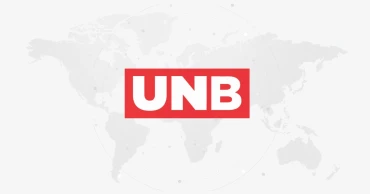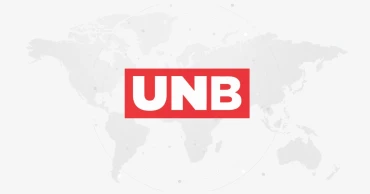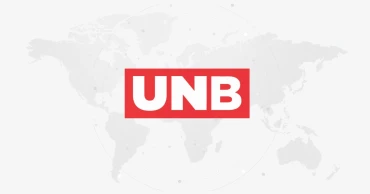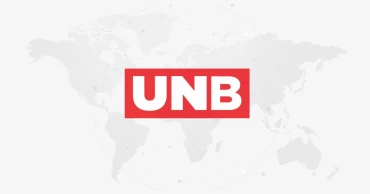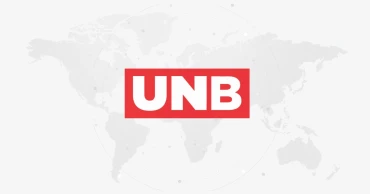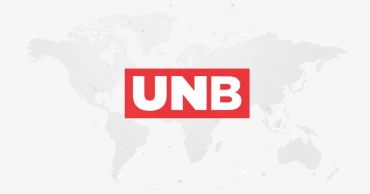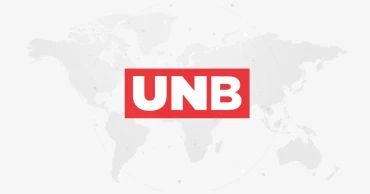BAFEDA
Bangladesh urged IMF to downsize required reserves to $20 billion for next loan instalment, says official
Bangladesh has now requested the International Monetary Fund to lower the requirement of foreign exchange reserves at $20 billion as a condition of releasing the second installment of the $4.7 billion loans, an official of Bangladesh Bank confirmed this on Monday (October 16, 2023).
The request was made to the visiting IMF delegation that reviewed with the officials the progress in meeting its conditions.
Read: Myanmar ambassador meets with FBCCI, keen to start direct flight
Despite different measures taken by including cutting unnecessary and luxury goods imports, in the last three months, gross reserves declined by $2.58 billion.
Two main sources of foreign exchange earnings –inward remittances flow saw a record decline to $1.34 billion in September and export earnings failed to achieve the target.
Considering the situation the central bank proposed to the IMF mission led by Rahul Anand to revise the reserves down to $20 billion.
Under the terms of the $4.7 billion IMF loan, the actual reserves were supposed to be maintained at $24.46 billion last June and $25.30 billion in September. At the end of December, Bangladesh must maintain at least $26.81 billion in net reserves.
Read: PGCB, GIZ set up lab to advance country’s clean energy transition
The net forex reserves are now less than $18 billion, according to the calculations of Dr Zahid Hussain, a former lead economist of the World Bank's Dhaka office.
However, the IMF also suggested that BB fix the exchange rate of US dollars on competitive market price, which is now being set by the Bangladesh Foreign Exchange Dealers’ Association (BAFEDA) in the concentration of the BB.
The central bank earlier relaxed the exchange rate of the US dollar gradually and now the official exchange rate is Tk112 per dollar.
Economist Dr Ahsan H Mansur said that Bangladesh has to maintain strict monitoring of trade-based money laundering along with cutting unnecessary imports to check the downslide.
Read: IMF lowers growth forecast for current fiscal to 6 percent
2 years ago
Despite Bangladesh Bank Governor’s decision to not raise exchange rate before election, dollar rate hiked again
Bangladesh Bank decided not to bring major changes in the US dollar exchange rate before the upcoming national election. The central bank’s Governor Abdur Rouf Talukder informed of this decision at a meeting with managing directors and CEOs of banks recently.
At that meeting, the governor said that Bangladesh Bank will not make any policy changes regarding the dollar market or the foreign currency market before the national election.
Despite this decision, the dollar rate has been raised by Tk .50 or 50 paisa in all cases. The price of the dollar has increased to Tk 110 in case of export and expatriates’ income, and to Tk 110.50 in case of import.
Read: Selling dollars at higher prices: What is Bangladesh Bank’s action against treasury heads of 10 banks?The dollar rate was hiked again yesterday, which is effective from today.
The dollar crisis in the country has become evident since March 2023, following the downturn caused by the Russia-Ukraine war.
To deal with this crisis, Bangladesh Bank fixed the dollar price at the beginning. This worsened the crisis. Later, last September, Bangladesh Bank withdrew from determining the price of the dollar.
Read: Bangladesh Bank seeks explanations from 13 banks for selling dollars at higher prices
This responsibility has been given to the Association of Bankers, Bangladesh (ABB) and Bangladesh Foreign Exchange Dealers’ Association (BAFEDA).
Since then the two organizations have been jointly setting the dollar price for export, remittance earnings, and payment of import liabilities.
Read more: Dollar goes off kerb market after central bank-led raids of money exchanges
2 years ago
Exporters to get slightly higher rate of Tk 102 for one US dollar
Exporters will get Tk102 against a US dollar to repatriate their export income in Bangladesh.
The Association of Bankers Bangladesh (ABB) and Bangladesh Foreign Exchange Dealers’ Association (BAFEDA) announced the new dollar rate for exporters effective Monday.
This is up by one taka from the earlier rate of Tk. 101 per dollar.
Read more: FBCCI seeks dollars from reserves to import commodities for Ramadan
The leaders of ABB and BAFEDA held a meeting on Sunday night to determine the price of the dollar. It decided to increase the rate for export income, but the price of the dollar was kept unchanged in the case of payment of expatriate income and import duties.
As per the new decision, exporters will get Tk1.0 more against each dollar. And in terms of expatriate income, the dollar price has been kept unchanged at Tk 107.
Apart from this, the value of the dollar will be Tk 0.50 more than the average of expatriate and export earnings in terms of payment of import duties.
Read more: Remittance: Bangladesh Bank tells banks to provide Tk 107 per dollar
At present, the price of the dollar in expatriate income is Tk107 and that for export income is Tk102.
As a result, the average of expatriate and export income is Tk104.5. Adding Tk0.50 to this average will be Tk105 per dollar of import bills.
The greenback has been in short supply since March last year following Russia-Ukraine war that jolted global economy.
Read More: No dollar crisis in banks from next month: Salman F Rahman
3 years ago
Remittance: Bangladesh Bank tells banks to provide Tk 107 per dollar
Bangladesh Bank has asked banks to provide Tk 107 per US dollar inward remittance.
A remitter will now get Tk 107 per dollar, even if they send remittance directly through banks.
Currently, remitters are getting Tk 99.5 per dollar through the banking channel. Remittance flow through banks fell drastically in September and October.
Read more: Bangladesh Bank will go slow in calculating reserves following IMF formula
Apart from this, the banks will not charge any fee for remittance collection from now on. At the same time, in the current reality of foreign exchange reserves, banks have to open LCs with dollar resources from their own sources, Bangladesh Bank said to the commercial banks
These instructions were given on Monday (October 31, 2022) in a meeting between the central bank and the Association of Bankers, Bangladesh (ABB), an association of banks' chief executives, and the Bangladesh Foreign Exchange Dealers’ Association (BAFEDA)
Deputy Governor Ahmed Jamal and Kazi Sayedur Rahman were present at the meeting.
Read more: Bangladesh Bank asks banks to stop ACU transactions with Sri Lanka
ABB Chairman and BRAC Bank Managing Director (MD) Salim RF Hossain, on behalf of the banks, BAFEDA Chairman and Sonali Bank MD Afzal Karim, Mutual Trust Bank MD Syed Mahbubur Rahman, City Bank MD Masrur Arefin and others were present.
Besides, the central bank has asked to increase the number of exchange houses outside the country to encourage remittance collection directly through banks by reducing the dependence on foreign exchange houses. In this case, the central bank will provide the necessary assistance.
Banks have committed to implementing these decisions.
Read More: How to safely send remittance to Bangladesh?
3 years ago
Remitters will get Tk 107.5 per dollar instead of Tk 108 from Oct 1
Expatriate Bangladeshis will get maximum Tk 107.5 per US dollar instead of Tk 108, for remittance from October 1, 2022.
Association of Bankers, Bangladesh (ABB) and Bangladesh Foreign Exchange Dealers’ Association (BAFEDA) have set this rate for remittance next month – to stabilize the forex market.
Economists are saying controlling the exchange rate would have negative impact on the current inward remittance flow.
Read: Bangladesh received over $1 billion remittance in Sep 1-15
Economist and Chairman of PRI, Ahsan H Mansur, told UNB that this is not the right decision to attract more remittance when the kerb market rate is over Tk 114 per dollar.
It may encourage sending money through illegal channels, which does not help in resolving the forex crisis, he said.
Professor Mustafizur Rahman, distinguished fellow of CPD, also said that controlling exchange rate is not helpful when market demand for forex is expanding.
Read:Uniform rate: Tk 108/dollar max for remittance, Tk 99/dollar for export income from tomorrow
He said several rates for US dollar will create discrepancies and discourage remittance flow.
The illegal sector will be encouraged while exchange rate difference between banks and kerb market will be widened, Prof. Mustafizur said.
According to the decision of the meeting held on Monday, remitters will get maximum Tk 107.5 per US dollar. Earlier on September 11, ABB and BAFEDA fixed the maximum price of a dollar at Tk 108 for remittance.
Read Explainer: What it means to let taka float
The dollar rate of export income monetization will remain at Tk 99 per dollar as before. In the case of payment of import liabilities and inter-bank transactions, price of dollar will be Tk 1 higher than the average price of a dollar bought from expatriate and export earnings.
At the end of the meeting, BAFEDA Chairman Afzal Karim told the reporters, “There was supposed to be a price review from time to time to keep the dollar market normal.”
“In continuation of this, we have decided the new price. The new price will be effective from October 1,” he said.
Read How to safely send remittance to Bangladesh?
3 years ago
Explainer: What it means to let taka float
We are in the middle of the first full working week since Bangladesh’s declared adoption of a floating exchange rate for taka against the US dollar, paving the way for the forces of demand and supply - in a word, the market - to determine the rate going forward.
Bangladeshi officials however, have a history of such utterances, without the necessary follow up actions. Most famously perhaps, there is even a formal commitment from 2003 (Bangladesh Bank. Exchange Rate Circular No. 01, 2003 – still available on the BB website), that the central bank subsequently abandoned.
As a result, for almost its entire existence as a sovereign currency, taka’s value has been artificially set by the country’s monetary authority, i.e. Bangladesh Bank, and then allowed to float within a certain band - the so-called managed or ‘dirty’ floating exchange rate.
Read: Banks reschedule loans worth nearly Tk 6000 crore, waive Tk 2800 crore in interest in first 6 months of 2022
In order to maintain the rate at or near its preferred level, the central bank would intervene in the currency markets to buy or sell dollars as the intervention currency. Maintaining an artificially overvalued rate in comparison to the market value, as Bangladesh Bank has almost always done, necessitates selling dollars from its foreign exchange reserves.
Why now?
But the “strongest dollar in a generation”, witnessed over the last year or so and likely to persist well into the foreseeable future, was starting to make the dirty floating system very expensive to maintain for Shapla Chattor, rapidly depleting its reserve of dollars.
In the 2021-22 fiscal, that ended on June 30, Bangladesh Bank spent $7.62 billion from the country’s foreign exchange reserves as it scrambled to slow down taka’s slide against what some are calling “the hideous strength of the dollar.” In the first two months of the current fiscal, July-August, that coincided with a period in which even the government was forced to recognise the impacts of a range of worrying signs for the economy, it escalated dangerously.
Read: Bangladesh received over $1 billion remittance in Sep 1-15
During this period, the central bank spent a further $2.85 billion on shoring up its preferred, overvalued rate, or rates, as it kept stretching to hold on, for taka against the dollar. If you annualise that, you’re looking at spending over $15 billion over the course of the fiscal. Probably more, with all the signs being that US Federal Reserve policies are likely to strengthen the greenback further over the foreseeable future.
At a time when the quite rapid depletion of the forex reserves from its peak of $48.1 billion in August 2021 to some $37 billion at the moment has become a matter of concern (and the IMF
credibly contending that effectively it is a further $7 billion less), the central bank has been forced to realise it is unsustainably costly to hold on. It has to let taka float.
Read Uniform rate: Tk 108/dollar max for remittance, Tk 99/dollar for export income from tomorrow
Does it mean BB will not sell dollars again?
What that basically means is to adopt a hands-off approach. To refrain from using its intervention tools. Importantly though, it doesn’t give up its authority to do so. It may become interventionist again, at any point - unless it gets to a point where you are charged as a ‘currency manipulator’, as the US did with China in 2019, there is nothing really to give you pause even, once you decide to do it. There is nothing to bind you to ‘letting it float’.
And central banks can be clingy. There are no purely floating currencies, it’s all a bit relative. Canada has had a floating exchange rate for longer than any other country. The Canadian national bank has not interfered with its dollar’s price since 1998. The US dollar is a close second. By contrast, Japan and the UK intervene to a greater extent, and India has medium-range intervention by its national bank, the Reserve Bank of India.
What kind of exchange rate regime a country maintains over a given period is actually a call that can only truly be made after the event, when you have the data to tell you to what extent there may or may not have been intervention. It’s a bit like assessing whether you’ve been faithful in a relationship or not - you cannot have it up front. You have to look back.
Read ABB, BAFEDA will meet tomorrow to set uniform dollar rate for banks
But a commitment can be important, and the closest thing resembling such a commitment for Bangladesh Bank that suggests it is preparing to go further this time than it has gone before to letting the currency float came last week: for the first time, Shapla Chattor appeared to accept a suggested rate from the market, along with a mechanism for determining it on a regular basis going forward.
What is the market rate?
The task for coming up with the market-determined exchange rate had been left to the Bangladesh Foreign Exchange Dealers' Association (Bafeda), in consultation with the Association of Bankers Bangladesh (ABB). After months of meetings between the three parties, last week (September 11), the rate put forward by them, along with a mechanism - a weighted average based on actual transactions over the previous 5 working days - was accepted by Bangladesh Bank in a meeting, and subsequently announced.
Since September 13, this rate has been published on the BB website as the nominal rate for the dollar, along with the following note: “Exchange rates of Taka for inter-bank and customer transactions are set by the dealer banks, based on demand-supply interaction and indicative rates suggested by Bangladesh Foreign Exchange Dealers' Association. Bangladesh Bank is not in the market on a day-to-day basis, and undertakes USD purchase or sale transactions with dealer banks only as and when needed to maintain orderly market conditions.”
Read Foreign exchange rate stable after Bangladesh Bank tightens spending
Note the phrase "as and when needed" - it tells you that should the need arise (most likely if the government perceives taka has depreciated too much), the central bank still reserves the right to intervene and effectively override what it has committed to.
There will be teething issues - reports suggest Bangladesh Bank is still selling dollars, but if it stays the road, this will taper down. There are criticisms of the agreement entered into with BAFEDA, in particular how it creates three different dollar rates - one for exporters, one for remitters and one for importers. And leaving the exchange rate to the market while holding on to a fixed interest rate regime (interest rate on lending is currently capped at 9%) goes against conventional wisdom in economics. These are issues we will get to explore in future.
Explainers related to the economy are vetted by economists.
Read BB eases outward remittance rules for foreigners
3 years ago
ABB, BAFEDA will meet tomorrow to set uniform dollar rate for banks
Association of Bankers, Bangladesh (ABB) and Bangladesh Foreign Exchange Dealers’ Association (BAFEADA) will meet again tomorrow (September 11, 2022) to determine the uniform exchange rate of US dollar.
They (ABB and BAFEDA) will then formally inform Bangladesh Bank of their decision on the execution of a single rate of the dollar.
On Thursday, Bangladesh Bank had discussions with banks to determine what to do in the dollar market. Central bank’s Deputy Governor Ahmed Jamal chaired this joint meeting with ABB and BAFEDA leaders. At the end of the meeting, Governor Abdur Rouf Talukdar joined. But they could not finalise the decision on a single rate for dollar.
Read: BB revises cluster credit guidelines to boost small enterprises
Both organisations sought time to monitor the dollar market and understand the import-export situation before setting the unified rate of the dollar.
There has been volatility in the dollar market for several months. The central bank is struggling to keep the exchange rate of the dollar stable.
ABB Chairman and Managing Director of BRAC Bank Salim R. F. Hussain told UNB that the dollar market will stabilize in the next two months due to decrease in the transaction deficit in foreign trade.
Read The dancing dollar and the Bangladesh Bank
3 years ago
